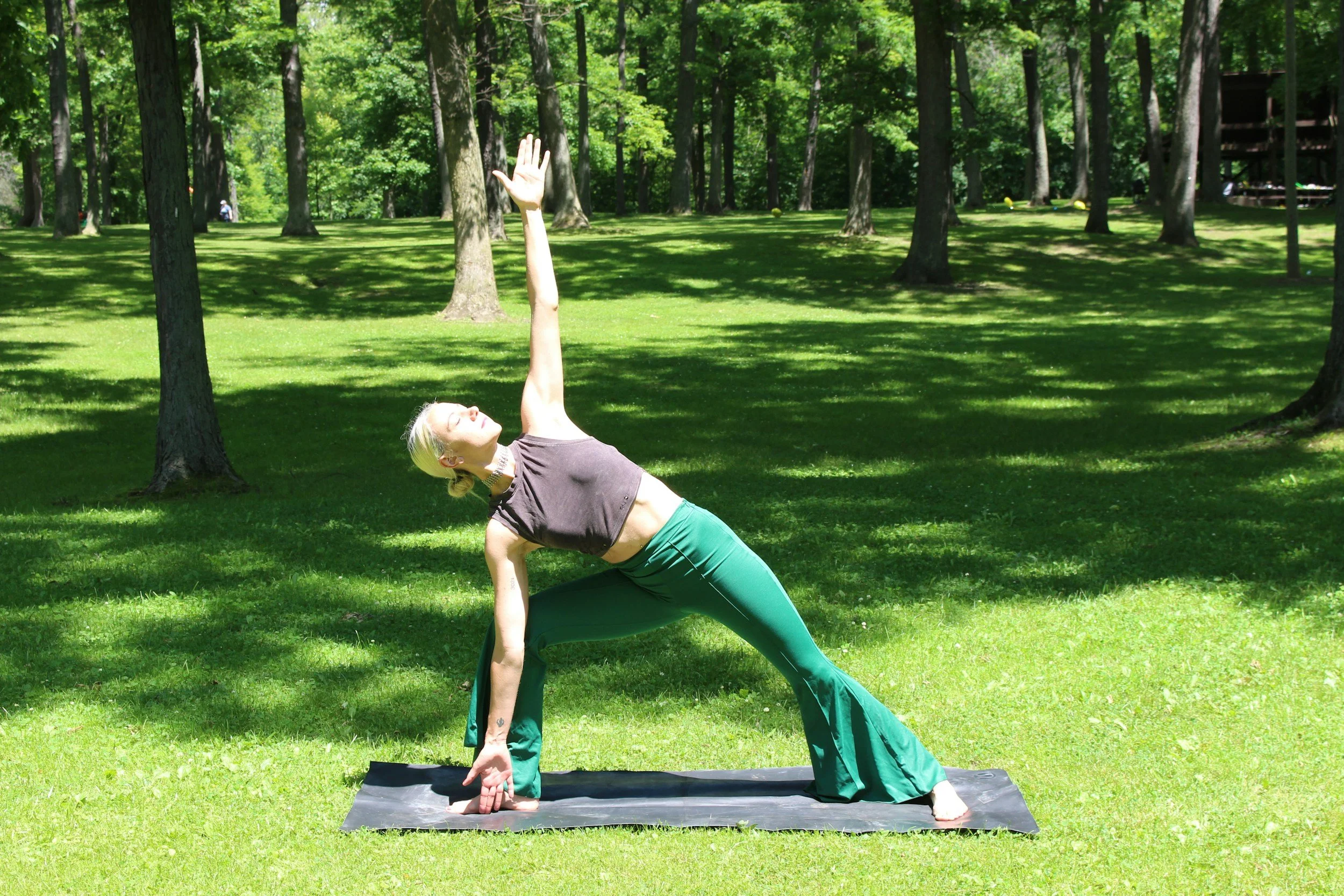
How to Practice Yoga During Kapha Season
Awakening Your Energy: A Gentle Yoga & Ayurveda Guide for Kapha Season
During Kapha season, it’s very common to feel less motivated to roll out your yoga mat—even when you know practice would help. Heaviness, sluggishness, or that familiar “I’ll do it tomorrow” feeling can quietly settle in. If this resonates, take heart: it’s not a lack of discipline. It’s simply the natural qualities of the season expressing themselves through your body.

Vata-Pacifying Ayurvedic Recipes
This is the time to ground, warm, and nourish with cooked, oily, and easily digestible meals that bring stability and calm to body and mind. Favor the sweet, sour, and salty tastes, and enjoy plenty of soups, stews, and warm drinks.
“To balance Vata, eat as if you’re feeding your inner fire — slowly, mindfully, and with warmth.”
Breakfast: Warm Spiced Oat Porridge with Dates & Almonds
Lunch: Root Vegetable Kitchari with Ghee & Fresh Herbs
Dinner: Creamy Carrot-Coconut Soup
Tea: Calming CCF Chai (Cumin, Coriander, Fennel)

Summer Pitta-Pacifying Recipes
These simple, cooling, and nourishing recipes are ideal for balancing Pitta dosha during the summer season. Each dish emphasizes sweet, bitter, and astringent tastes, while avoiding excessive heat, spice, and oil.
Breakfast: Stewed Apple & Pear with Cardamom and Mint
Lunch: Cooling Quinoa Bowl with Cucumber & Cilantro-Lime Dressing
Dinner: Mung Dal & Zucchini Soup
Tea: Hibiscus Limeade

Ayurvedic Tips for Vata Season
Embrace excellent health, creativity, and freedom this fall/winter!
VATA DOSHA | Air + Ether
Season | Late fall to late winter
Time | 2:00 - 6:00 am/pm
TIME OF LIFE | Age 50 - 75+ years
The common translation of vata is “that which moves things.” Vata is often referred to as the vayu (wind) in the body, and it is the primary motivating force of the doshas—without it, the other doshas are unable to move. Vata is dry, light, cold, rough, subtle/pervasive, mobile, and clear.
According to Ayurveda, Vata is responsible for our mental and physical adaptability. It is the energizing force of the body and mind, and it governs our nervous system, our bones, and our senses of touch and hearing. During the early fall and winter, Vata can accumulate in the colon, low spine, hips, thighs, bones, and nerves manifesting within the body as constipation, flatulence, dry skin, insomnia, arthritis or sciatica. The key to pacify Vata is to remain grounded, warm and stable. When out of balance emotionally, the light quality of Vata provokes fear, anxiety, loneliness and insecurity. When Vata is in balance, the Vata person experiences excellent health, stability, creativity, and freedom.

